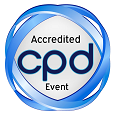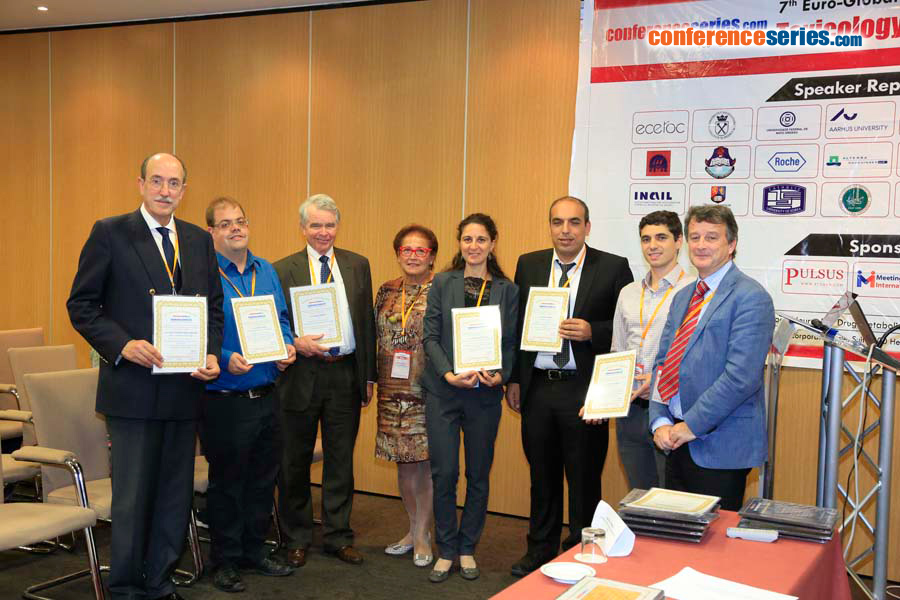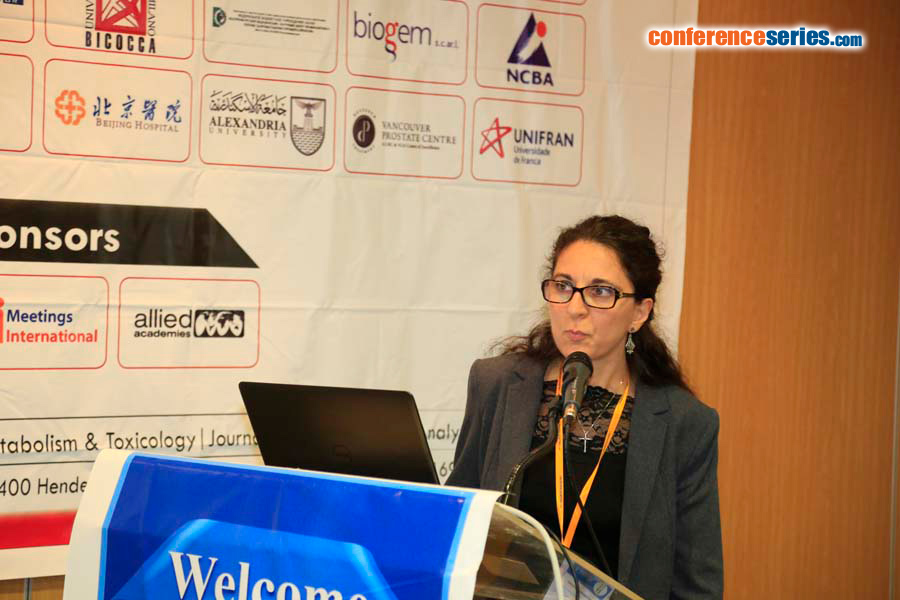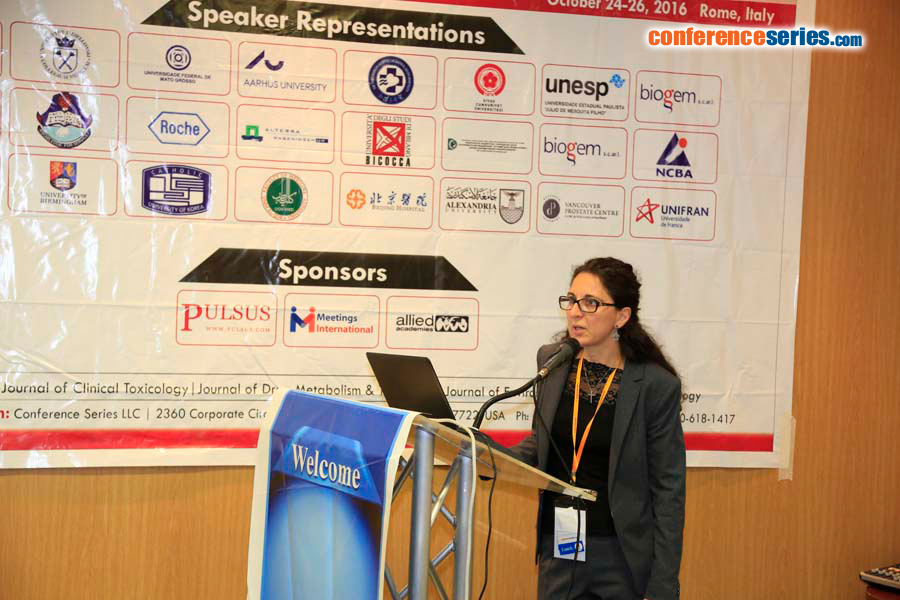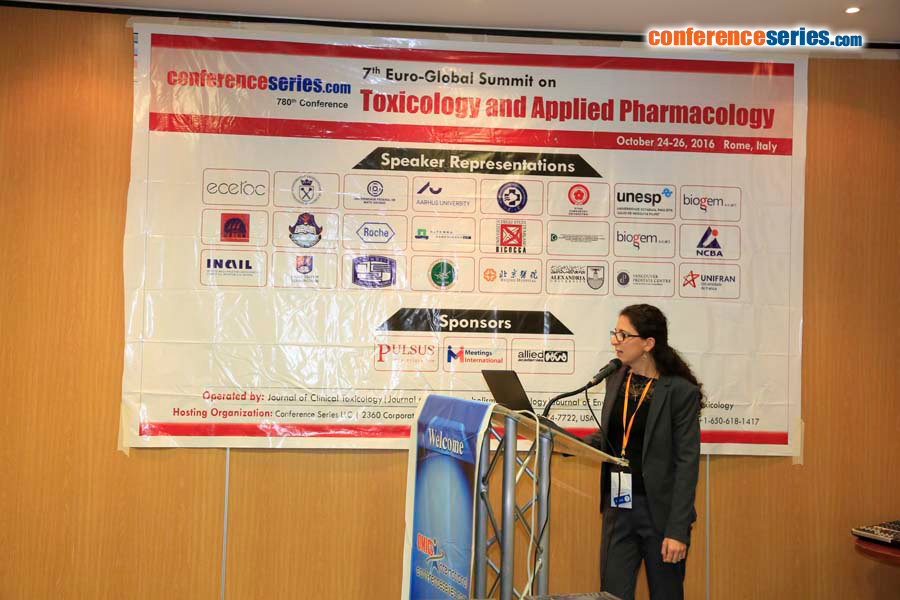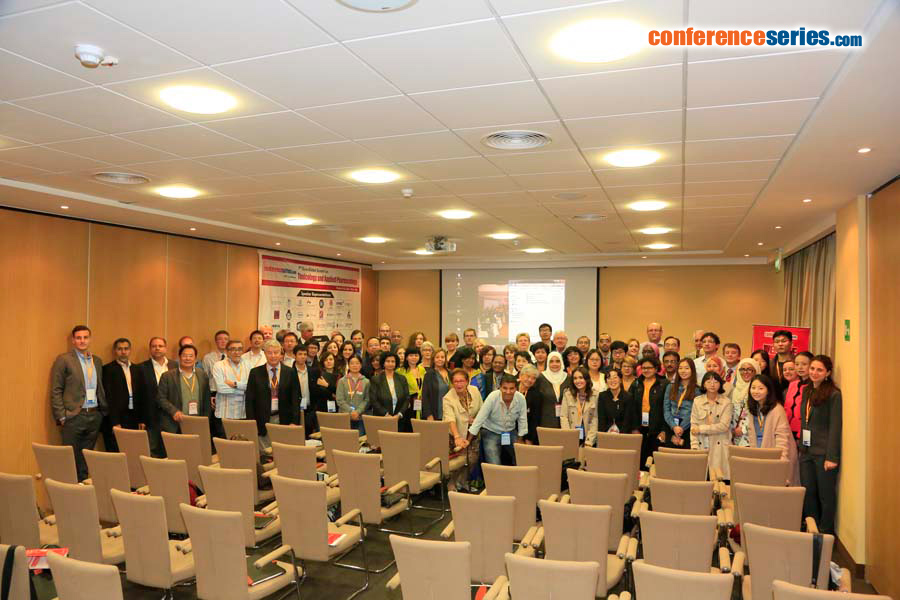Pieranna Chiarella
Istituto nazionale Assicurazione Infortuni sul Lavoro, Monte Porzio, Italy
Title: Urine sediment as DNA source in the study of susceptibility biomarkers
Biography
Biography: Pieranna Chiarella
Abstract
Several genes encoding for enzymes involved in xenobiotic biotransformation and oxidative stress response have been shown to be polymorphic within the human population. These genes are particularly noteworthy in the occupational
toxicology field being useful to identify individuals with higher susceptibility to specific toxic agents, allowing implementation of measures to reduce the exposure risk. Although blood is the fi rst choice biological matrix to extract genomic DNA, there are some critical issues hindering its use in occupational studies: 1) blood draw invasiveness 2) diffi culty to achieve consent
from donors 3) need of the authorized medical doctor for blood sample collection 4) safety issues during blood processing 4) time-length of cell isolation procedure. Since urine is the routine sample used in the bio-monitoring of occupational exposure to chemical agents, the use of the same sample would be advantageous for both purposes, i.e. biomarker determination and genotyping. Here we report an eff ective method to isolate genomic DNA from urinary sediment. Th e protocol is not based on
use of commercial kit, is cheap, rapid and allows determining the genotypic status of individuals using PCR and RFLP analysis. Before applying this procedure to exposed workers, we tested the effi cacy on urine harvested from our institute donors and carried out genotyping analysis of GSTT1 and GSTM1 enzymes. In conclusion, at least for the genotyping analysis, urine sediment represents a suitable alternative to whole blood. Th is approach might be extended further to identify specific gene and protein biomarkers of dose/exposure in the occupational and environmental setting.
Speaker Presentations
Speaker PPTs Click Here
